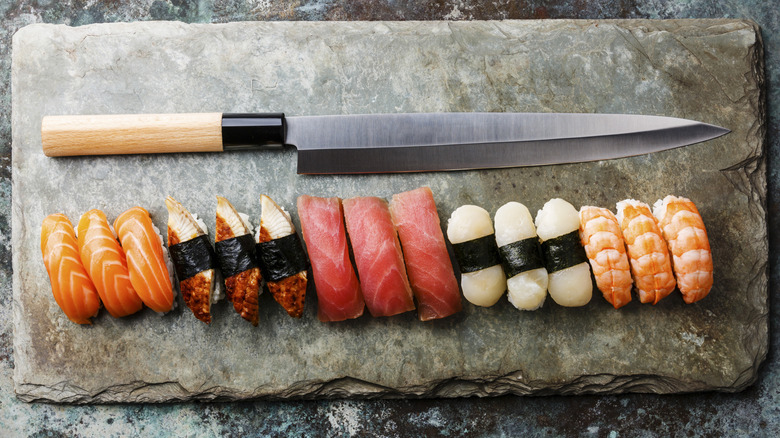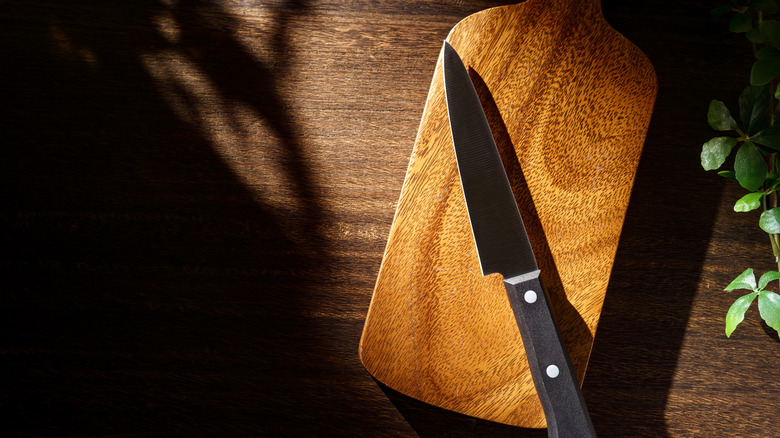Why Do So Many Chefs Prefer Japanese Knives?
While a lot goes into finding the best chef's knife for your own tastes as a novice chef, many professional and amateur chefs across the globe believe that Japanese knives are the very best due to their high-quality material, sharpness, hardness, and design. In order to understand what makes Japanese knives so unique, we asked Maricel Gentile — executive chef and owner of Maricel's Kitchen, as well as the author of "Maricel's Simply Asian Cookbook" — to give us the crash course on the intricate world of Japanese knives.
Beyond being made of long-lasting steels like carbon and alloy, Gentile explained how small details coalesce to create such magnificent knives. "Many are hand-forged and feature a thinner blade bevel and often 12 degrees per side [...] This makes them cut more easily and cleanly," the chef explained. "A hammered (tsuchime) finish helps food release from the blade. These qualities mean less elbow grease, more precise cuts, and years of reliable use when cared for properly."
However, not all Japanese knives are the same, and some are more varied and generally useful than others. In fact, while we suggested that the santoku is the must-have Japanese knife for your kitchen, Gentile believes that a different blade is ideal for daily use. "A gyuto (chef's knife) is the best all-around tool for everything from chopping herbs to slicing meat," she advised.
Differences between Western and Japanese knives
You can also discover just how special Japanese knives are by comparing them to those made in the West. For example, one of the most well-known differences between Western and Japanese knives is in sharpness, which is far more vital than you may think. "Because of their fine edge angles and hard steel, Japanese knives can reach razor-sharpness, and they often stay sharper longer than softer blades," Maricel Gentile explained. "A dull knife forces you to press harder, which crushes food cells, robs ingredients of flavor, and raises the risk of slipping and injury."
So, if Japanese knives have all these superior qualities, what use do Western knives offer chefs? Well, according to Gentile, keeping your Western knives on hand — and making sure your knives haven't gone dull — can prove crucial for certain ingredients. "Home cooks may prefer American knives for tough tasks like cutting through squash or bones," she added. "Choosing the right tool makes cooking feel both easier and more joyful."

